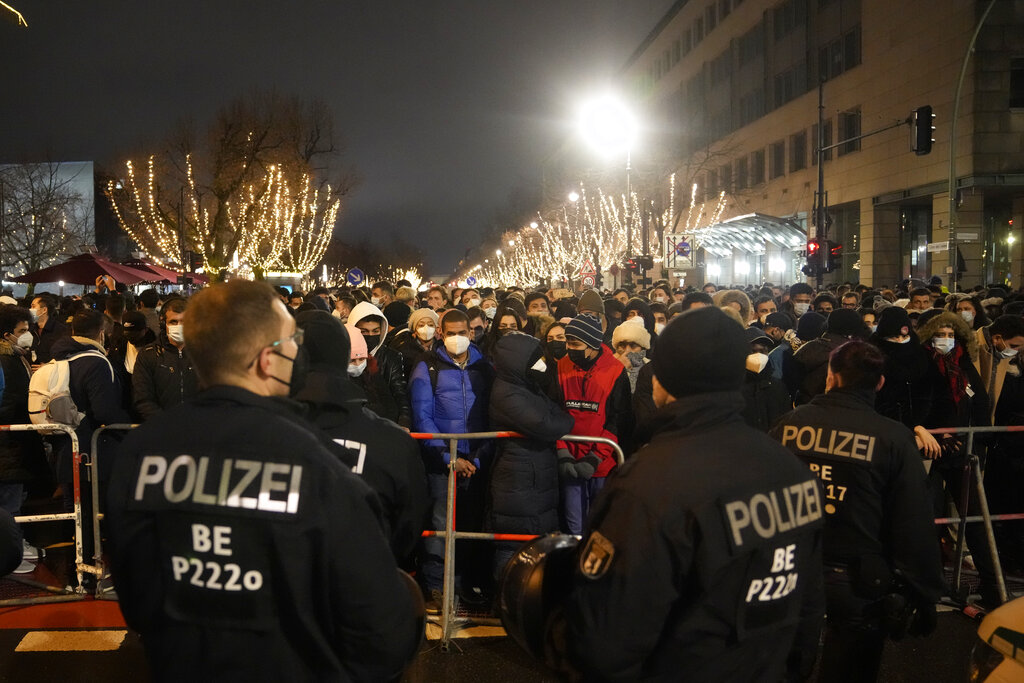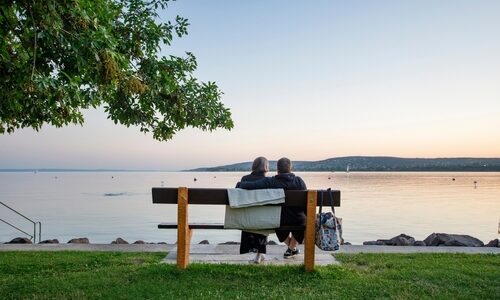Despite the recent Christmas market attack in Germany creating an immense amount of fear in German society, there are various threats that also arise every year across Europe due to New Year’s Eve celebrations, with Germany especially hard hit, Hungarian security policy expert György Nógrádi told Magyar Nemzet.
“The Magdeburg murders showed that a doctor from Saudi Arabia, one of the richest countries in the world, comes to Germany and is unable to integrate. It is somewhat frustrating, and not only for Germans, that after every such murder by migrants, teddy bears and bouquets of flowers flood German cities, but no decisive change has taken place. German politics is incapable of this,” said Nógrádi.
In the wake of the Magdeburg incident that left five dead, including a child, and scores wounded, German police are preparing for this year’s New Year’s Eve with special security measures, as the country has previously experienced vandalism, fireworks, mass sexual assaults, and robberies on the last day of the year, all mostly committed by migrants.
The German terror attack could have been prevented.
We posted this video just 3 days ago.
Maybe if police were deployed to fight real terrorists instead of grandmas, this Christmas market tragedy would've never happened. https://t.co/QYRMhqpur7
— Remix News & Views (@RMXnews) December 20, 2024As Remix News reported, the celebrations in 2022 going into 2023 in Berlin were especially devastating, with millions in damage to vehicles and buildings due to migrant youths. In Berlin alone, 145 individuals were arrested during the rioting and 47 police officers and 15 firefighters were injured.
However, it is not just holidays that are of concern, according to the Hungarian security expert Nógrádi. He says that Germany has fallen victim to a culture of crime for almost a decade now, with the percentage of sexual assaults and other violent acts committed by foreigners far greater than their proportion of the population, which is supported by the data. In fact, in 2023, foreigners made up a record share of criminals, accounting for 41 percent of all criminal suspects.
WATCH: CCTV footage shows three men attacking doctors and nurses at the Lichtenberg Hospital in Berlin on New Year's Eve.
One man can be seen punching a doctor to the floor while another assaults a nurse.
According to Berlin police, the trio turned violent because they were not… pic.twitter.com/gYkkaH60fW
— Remix News & Views (@RMXnews) January 3, 2024“The year 2015 brought a mass of migrants that Europe could not deal with, and the migrants stayed here in Europe and Germany,” security policy expert György Nógrádi said. He added that “since the majority of the arriving migrants were unable to integrate, this poses a huge security threat.”
“According to a recent German police report, Syrians commit the most crimes in Germany, and Ukrainians commit the second most crimes,” Nógrádi noted.
The expert also countered the notion of German industry that Syrian migrants are workers when the data indicates anything but. Just recently, Remix News reported on Friedrich Merz, the CDU’s candidate for chancellor, stating outright that two-thirds of Syrians “do not work” and “are overwhelmingly young men.” His comments came in the wake of the collapse of Bashar al-Assad’s government, when many leaders across Europe asked why Syrians should not now “go home.”
🚨🇩🇪 Germany: Two-thirds of Syrians do not work and "many must go back," says the top candidate for chancellor, Friedrich Merz (CDU).
Snap national elections are coming in February and immigration is often polling as the no. 1 issue for Germans.
During an appearance on ARD,… pic.twitter.com/JOIWy10o4F
— Remix News & Views (@RMXnews) December 16, 2024Yet another report indicated that nearly half of Syrians in Germany remain dependent on citizen’s benefits nearly a decade after the 2015 asylum wave. Even for those Syrians who are highly integrated, there are difficult humanitarian questions in place, especially when Syria is facing a dire future due to a lack of skilled workers and medical professionals.
🇸🇾🇩🇪 German politicians are spreading misleading information about Syrian doctors working in Germany.
5,000 Syrian doctors may sound like a lot, but there are 420,000 doctors in Germany. The number of Syrian doctors is approximately just enough to cover the 1 million Syrian… pic.twitter.com/fHJh9945y9
— Remix News & Views (@RMXnews) December 30, 2024As to the chancellor in charge during the 2015-2016 migration crisis, Angela Merkel, also of the CDU party and famous for her policy of “Willkommen” has come out criticizing her party for advocating stricter border controls and staunchly defended her legacy of accepting in so many migrants.
In a wide-ranging interview with Der Spiegel, former German Chancellor Angela Merkel slammed her old party for calling for stricter border controls, and also had a few choice words for Donald Trump and @elonmusk. https://t.co/5rrQR2FnPw
— Remix News & Views (@RMXnews) November 22, 2024However, Nógrádi says that the Magdeburg attack shows that even someone who has been in Germany for nearly two decades and was in a respected profession can pose a threat. This has raised alarms in Germany and may buoy the AfD party heading into elections However, Nógrádi does not see them gaining any real power, with the status quo remaining after early elections on Feb. 23, despite their success in the polls.
The party is simply considered “unacceptable in German politics,” he said.
A 75-year-old French woman was raped by an African migrant and a 7-year-old French girl was sexually assaulted by an Afghan in two separate incidents tied to New Year’s celebrations, according to police. https://t.co/RskwqBjThX
— Remix News & Views (@RMXnews) January 2, 2024





